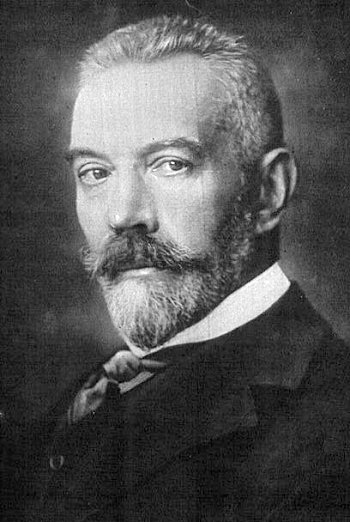Remarks to Conrad Haussmann (24 February 1918), quoted in Konrad H. Jarauschl, ‘The Illusion of Limited War: Chancellor Bethmann Hollweg's Calculated Risk, July 1914’, Central European History, Vol. 2, No. 1 (Mar., 1969), p. 48
Famous Theobald von Bethmann-Hollweg Quotes
Remarks to Conrad Haussmann (24 February 1918), quoted in Konrad H. Jarauschl, ‘The Illusion of Limited War: Chancellor Bethmann Hollweg's Calculated Risk, July 1914’, Central European History, Vol. 2, No. 1 (Mar., 1969), p. 48
Speech to the Reichstag (27 February 1917), quoted in W. M. Knight-Patterson, Germany from Defeat to Conquest, 1913–1933 (1945), p. 91
Speech to the Reichstag (28 May 1915), quoted in W. W. Coole (ed.), Thus Spake Germany (1941), p. 222
Remarks to Theodor Wolff (5 February 1915), quoted in Konrad H. Jarauschl, ‘The Illusion of Limited War: Chancellor Bethmann Hollweg's Calculated Risk, July 1914’, Central European History, Vol. 2, No. 1 (Mar., 1969), p. 76
Speech to the Prussian Ministry of State (30 July 1914), quoted in Konrad H. Jarauschl, ‘The Illusion of Limited War: Chancellor Bethmann Hollweg's Calculated Risk, July 1914’, Central European History, Vol. 2, No. 1 (Mar., 1969), p. 69
Theobald von Bethmann-Hollweg Quotes
Note (29 July 1914), quoted in Konrad H. Jarauschl, ‘The Illusion of Limited War: Chancellor Bethmann Hollweg's Calculated Risk, July 1914’, Central European History, Vol. 2, No. 1 (Mar., 1969), pp. 68–69
Letter to Schoen, Pourtales, and Tschirschky (29 July 1914), quoted in Konrad H. Jarauschl, ‘The Illusion of Limited War: Chancellor Bethmann Hollweg's Calculated Risk, July 1914’, Central European History, Vol. 2, No. 1 (Mar., 1969), p. 68
Letter to the Kaiser (26 July 1914), quoted in Konrad H. Jarauschl, ‘The Illusion of Limited War: Chancellor Bethmann Hollweg's Calculated Risk, July 1914’, Central European History, Vol. 2, No. 1 (Mar., 1969), p. 63
“It is improbable that England will immediately enter the fray.”
Letter to the Kaiser (23 July 1914), quoted in Konrad H. Jarauschl, ‘The Illusion of Limited War: Chancellor Bethmann Hollweg's Calculated Risk, July 1914’, Central European History, Vol. 2, No. 1 (Mar., 1969), p. 62
Letter to Rödern (15 July 1914), quoted in Konrad H. Jarauschl, ‘The Illusion of Limited War: Chancellor Bethmann Hollweg's Calculated Risk, July 1914’, Central European History, Vol. 2, No. 1 (Mar., 1969), p. 62
Speech to the Reichstag introducing the Military Bill (April 1913), quoted in W. M. Knight-Patterson, Germany from Defeat to Conquest, 1913–1933 (1945), p. 28
Letter to Eisendecher (23 March 1913), quoted in Konrad H. Jarauschl, ‘The Illusion of Limited War: Chancellor Bethmann Hollweg's Calculated Risk, July 1914’, Central European History, Vol. 2, No. 1 (Mar., 1969), p. 53
Letter to the Kaiser (6 March 1912), quoted in Konrad H. Jarauschl, ‘The Illusion of Limited War: Chancellor Bethmann Hollweg's Calculated Risk, July 1914’, Central European History, Vol. 2, No. 1 (Mar., 1969), pp. 59–60
